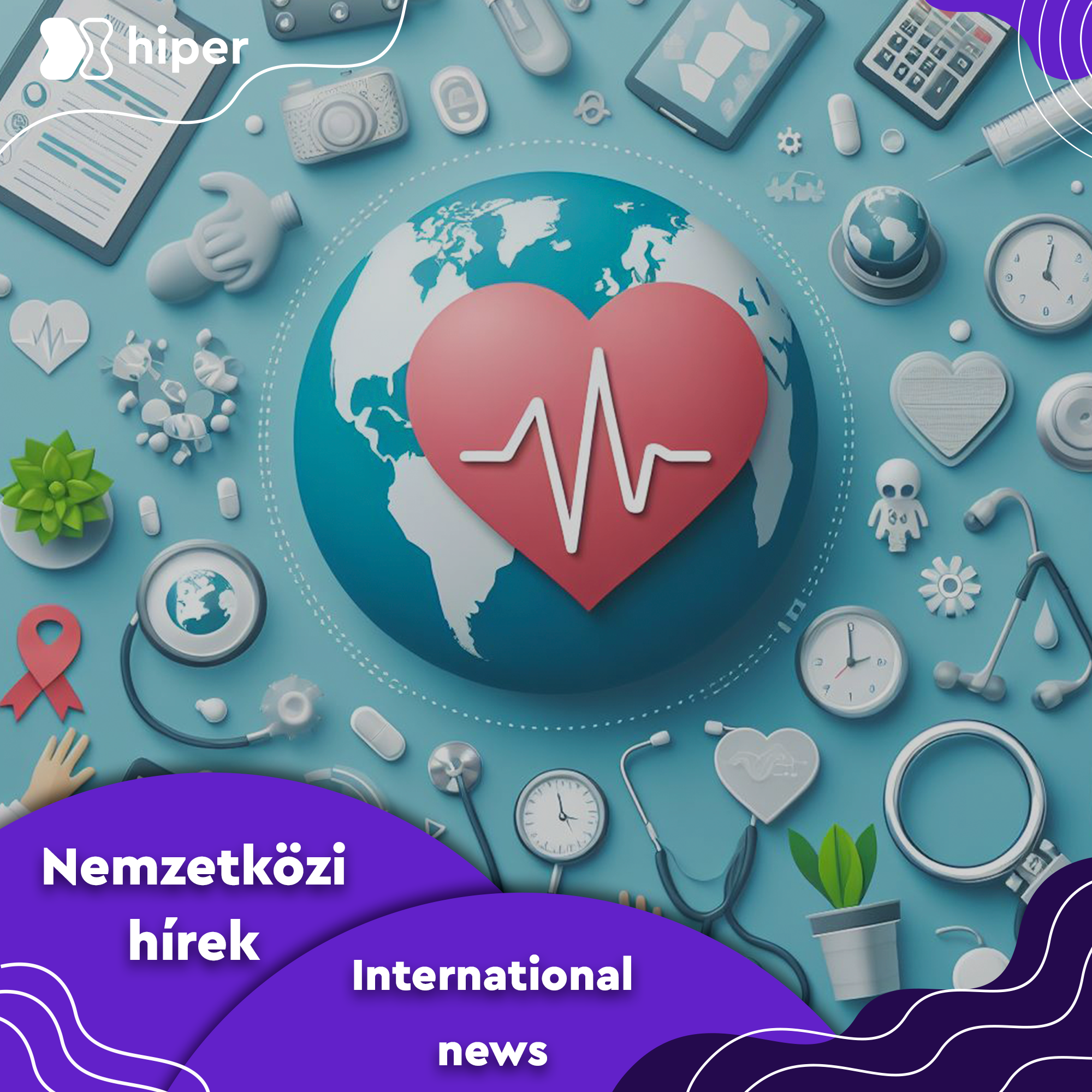International news 2025/3
Nemzetközi hírek, 20 Mar 2025
The global healthcare sector is undergoing rapid transformation, driven by digitalization, artificial intelligence, and innovative training methods. From addressing nurse shortages to expanding virtual simulations and AI-powered diagnostics, numerous advancements are shaping the industry. Challenges such as workforce shortages, rising costs, and the need for improved patient safety demand ongoing innovation. Implementing new technologies and educational approaches is essential to making healthcare more efficient and accessible.

New Jersey Legislation Aims to Address Nurse Shortage
New Jersey lawmakers have introduced new legislation to combat the severe shortage of nurses and healthcare workers. The proposed measures include scholarships and accelerated training programs to attract new professionals. State officials emphasize that these steps are crucial for maintaining patient safety and ensuring the stability of the healthcare system.
Source: WHYY
Medical Students Use Art Analysis to Enhance Critical Thinking
A new Yale University program integrates art analysis into medical education to improve students' critical thinking and diagnostic skills. Called the “Canvas Clinic,” this initiative encourages students to study paintings and artworks to refine their observational abilities. Educators believe this method could enhance clinical decision-making and patient care quality.
Source: Yale News
Healthcare Simulation Market Expected to Reach $19.5 Billion by 2030
A recent market report predicts that the global healthcare and medical simulation industry will grow to $19.5 billion by 2030. The demand for patient safety improvements and advanced clinical training is driving this growth. Technologies like virtual reality and AI-based simulations are increasingly shaping medical education and hands-on training.
Source: Globe Newswire
HCA Healthcare’s Role in Training the Next Generation of Physicians
HCA Healthcare is one of the largest medical training centers in the U.S., educating thousands of residents and interns annually. The institution focuses on integrating cutting-edge technologies and innovative training methods to ensure high-quality education for future doctors. The organization emphasizes hands-on experience and patient-centered care as key elements of medical training.
Source: HCA Healthcare Today
The Future of Nursing: Challenges and Solutions for 2030
Projections for 2030 indicate a major transformation in nursing as digitalization and automation reshape healthcare. Experts suggest that while technology can alleviate workforce shortages, nurses will need new skills such as data analysis and proficiency with digital tools. Healthcare systems must proactively support and train nurses to adapt to these changes.
Source: Healthcare IT News
Screen-Based Virtual Simulations Enhance Nursing Education
Virtual simulation technology is playing a growing role in nursing education by improving clinical judgment and critical thinking skills. These digital learning tools allow students to practice patient care in realistic scenarios, reducing errors in real-life medical settings. Experts believe this method is essential for preparing nurses and improving patient safety.
Source: Wolters Kluwer
Nurses at the Forefront of Healthcare’s Digital Revolution
The digital transformation of healthcare is rapidly advancing, with nurses playing a crucial role in adopting new technologies. Electronic health records, AI-driven decision support systems, and telemedicine are becoming integral to nursing practice. Experts emphasize the need for comprehensive training to ensure nurses can effectively use these technologies and improve patient outcomes.
Source: Australian Financial Review
Building a Future-Ready Healthcare Workforce
To ensure long-term success, healthcare systems must invest in training the next generation of professionals today. Experts highlight the importance of hands-on experience, innovative teaching methods, and professional support. Future healthcare workers will need not only medical knowledge but also technological and communication skills to deliver high-quality patient care.
Source: City & State NY
Artificial Intelligence in Healthcare: EU Regulations and Future Developments
The European Commission is working on integrating AI into healthcare safely and effectively. AI has the potential to improve diagnostic accuracy, enhance patient care efficiency, and reduce costs. However, regulations are crucial to ensure ethical AI development and protect patient data.
Source: European Commission – Health
Five AI Innovations Set to Transform Healthcare in 2025
AI is revolutionizing healthcare, with five key innovations shaping the industry in 2025. These include AI-driven diagnostics, personalized medicine, predictive analytics, robotic-assisted surgery, and AI-powered healthcare chatbots. Experts suggest these advancements could enhance patient care while reducing the workload on healthcare professionals.
Source: Forbes Tech Council
Breakthroughs in Cancer Diagnosis and Treatment
Recent medical advancements are transforming cancer diagnosis and treatment. Targeted therapies, AI-assisted imaging, and immunotherapy solutions are becoming more effective. Researchers believe these innovations will allow for earlier cancer detection and more personalized treatment plans for patients.
Source: World Economic Forum
Healthcare Innovation Persists Despite Industry Challenges
Despite workforce shortages, rising costs, and system overload, the healthcare sector continues to innovate. Technological advancements such as digitalization, AI, and automation play a key role in improving efficiency. Experts stress that adopting new methods and tools is essential for future healthcare improvements.
Source: Becker’s Hospital Review



